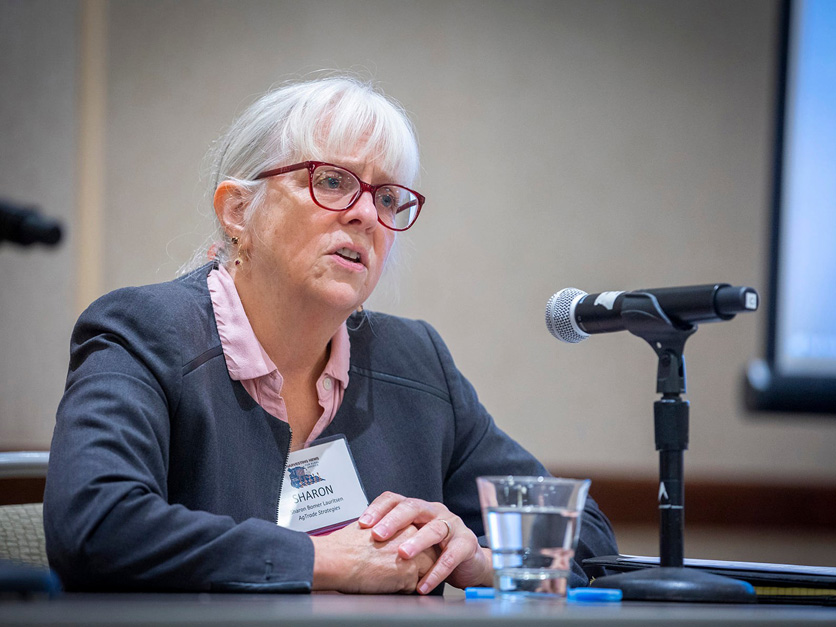The World Trade Organization needs to rack up a win after years of failing to gain consensus among all 164 member countries to produce a major achievement.
Next month, at its 12th Ministerial Conference, there could be a breakthrough in the form of an agreement to ban export restrictions on food that the World Food Program needs to acquire for humanitarian aid.
Singapore proposed a resolution years ago that countries be prohibited from refusing to provide food commodities that the United Nations World Food Program needs for distribution to people in need. There was initially strong support, and by December 2020, 71 countries had signed on as supply chains broke down during the COVID-19 pandemic and some nations sought to hoard commodities.
By January 2021, more than 80 countries signed on to a declaration, saying: “We recognize the critical humanitarian support provided by the World Food Program, made more urgent in light of the COVID-19 pandemic and other crises. We therefore commit to not impose export prohibitions or restrictions on foodstuffs purchased for non-commercial humanitarian purposes by the World Food Program.”
The proposal gained even more importance after the Russian invasion of Ukraine and the acceleration of countries banning exports of commodities like wheat and vegetable oil.
 Sharon Bomer Lauritsen, AgTrade Strategies
Sharon Bomer Lauritsen, AgTrade Strategies“I think Singapore’s proposal, which would assure that the World Food Program can purchase needed commodities for its humanitarian program, is critically important,” said Sharon Bomer Lauritsen, founder of AgTrade Strategies LLC, “particularly in the current environment of Russia’s invasion of Ukraine and countries imposing export restrictions on staple food crops, such as wheat.”
Rising global food prices, at least partially due to Ukraine’s inability to export millions of tons of grains and vegetable oil out of its blockaded ports, could translate into new hunger crises in places like Africa if the situation continues.
Export bans even took center stage at the G-7 summit of agriculture ministers in Germany last weekend after news broke that India enacted a ban on wheat exports. All of the ministers agreed India’s ban “is exactly the wrong thing to do at this point because it really does create additional disruptions of the market and can potentially increase prices, which makes food inflation and availability significantly worse than they already are,” Ag Secretary Tom Vilsack said.
The Singapore proposal would not prohibit all export bans. It only addresses commodities the WFP needs when it seeks to buy them, but even such a narrow goal faces difficulties at a highly fractious WTO.
Consensus-building at the WTO is difficult at best, say analysts, but Roberto Azevedo, a former WTO director-general, is even more pessimistic.
“Today it’s impossible,” he said last week at a webinar hosted by the Bipartisan Policy Center. “It’s absolutely impossible. Even when you have issues that you can discern the area where members may converge, even then its impossible to get consensus.”
William Reinsch, a senior adviser for the Center for Strategic and International Studies and former president of the National Foreign Trade Council, is less pessimistic but stressed the WTO needs an accomplishment at MC12 to assure the institution’s relevance.
“They need to negotiate something,” he said. “I don’t think the process of reform is the solution. The solution is to have a successful negotiation.”
Bomer Lauritsen said an agreement on the Singapore proposal would be a big win.
Looking for the best, most comprehensive and balanced news source in agriculture? Our Agri-Pulse editors don't miss a beat! Sign up for a free month-long subscription.
“I think that if we could get agreement on this proposal, it would show that WTO members can unite in a common cause and show that (the WTO) can reach decisions on critically important issues.”
 David Beasley, WFP
David Beasley, WFPAnd the World Food Program’s ability to deliver assistance is more important than ever, said World Food Program Executive Director David Beasley at a Senate Appropriations subcommittee hearing last week.
“Currently, in the 81 countries where WFP operates, up to 276 million people are acutely food insecure and in need of urgent food, nutrition, and livelihoods assistance — in other words, marching towards starvation,” he said. “This is a record high, and more than double the 135 million people living with acute hunger before the pandemic.”
And WTO Director-General Ngozi Okonjo-Iweala is adding to the pressure for results at MC12.
“A successful MC12 is a necessary step in the long haul towards making the WTO fit for purpose for the 21st century,” said Okonjo-Iweala said Monday at an event in Geneva. “Delivering results will create a new dynamic for future discussions.”
She went on to encourage WTO member countries to support “efforts to deliver results,” especially on “addressing global challenges such as high food prices,” according to a WTO statement.
For more news, go to www.Agri-Pulse.com.


